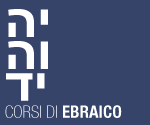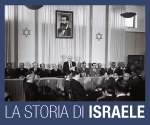Intervista a Ron Leshem, autore di 'Tredici soldati' – di Giusy Meister
29 novembre 2010
da: [i]http://bibliotecadisraele.wordpress.com[/i]
[b]La biblioteca d’Israele[/b]: ‘’Innanzitutto devo dire che è interessante parlare con un ragazzo della mia età che è riuscito a scrivere un libro dello spessore di ‘Tredici soldati’ (il titolo italiano del libro di Leshem, Beaufort). Non succede spesso in Italia, e allora mi interessa iniziare evidenziando questo aspetto: l’approccio della gioventù israeliana alla politica e alla cultura del proprio Paese. Sono rimasta colpita dalla intervista da te rilasciata al ‘Sole 24 ore’ in cui dicevi che i giovani a Tel Aviv vivono in una sorta di ‘bolla’. Ma dal di fuori questa condizione non appare così evidente, anzi, mi è sembrato che lì ci fosse piuttosto la tendenza ad essere dentro le cose, molta dialettica positiva, nonostante la complessità crescente della situazione.
[b]Ron Leshem[/b]: Credo che questo sia un problema di diversi Paesi, non esclusivamente di Israele…
Le giovani generazioni sono molto meno coinvolte politicamente dei propri genitori. Inoltre, ci si aspettava da loro che prima dei venticinque anni avrebbero almeno provato a fare una vera e propria rivoluzione, invece, si sono rivelate molto piu’ apatiche nei confronti della situazione generale e molto meno coinvolte di coloro che le hanno precedute. Però, il motivo reale di questo atteggiamento è che i giovani sono esausti, che siamo esausti. Sentiamo ormai che nulla potrà cambiare, e che i politici continueranno ad illuderci, così come dall’altra parte continueranno sempre a tentare di ammazzarci e basta. Siamo davvero molto stanchi, ma, oltre a tutto questo, bisogna anche considerare che Tel Aviv è uno dei posti più divertenti al mondo: la gente se ne va mezza nuda sulla spiaggia e affonda letteralmente nell’individualismo, e cio’ perché è convinta che nulla cambierà . Inoltre, è importante evidenziare anche un altro aspetto assolutamente centrale della nostra situazione: noi siamo un Paese occidentale. Tu vivi a Roma e non puoi realmente capire cosa significhi tentare di costruire una società liberale e democratica quando dall’altra parte del confine si uccide la gente solo perché beve alcool ed è omosessuale. Se poi sei donna, sei addirittura condannabile alla lapidazione in conseguenza dell’accusa di prostituirti o di aver tradito tuo marito. Come vedi, viviamo in una situazione assolutamente schizofrenica, ma stiamo cercando di creare uno Stato liberale, di matrice occidentale, e per molti aspetti ci siamo riusciti, ma le cose sono molto, molto complicate. Ad ogni modo, sai, penso che sia più corretto che, quando ho qualcosa di politico da dire, io lo vada a dire nel mio Paese, non mi sento a mio agio a fare considerazioni politiche sul mio Paese all’estero.
La biblioteca d’Israele: Ti faccio una domanda che feci anche ad Appelfeld:‘’ Come pensi che i giovani dovrebbero relazionarsi con il passato al fine di costruire qualcosa in grado di fondere in sé identità , memoria e futuro? Credi che questa sia una operazione possibile?’’. E come ti relazioni tu, Ron, al Passato? Intendo quello con la P maiuscola, non già quello strettamente personale.
Ron Leshem: Io credo che i nostri antenati, il nostro popolo, per tanto tempo, siano stati ossessionati dal passato. I nostri nonni e nonne, poi, sono stati ossessionati dal futuro e, infine, noi giovani, lo siamo ora dal presente. Incredibilmente ossessionati, tanto da affondare in un individualismo fortissimo, e tutto questo per me è molto triste, e mi preoccupa. Dobbiamo assolutamente trovate un equilibrio. Da un punto di vista personale, quando penso al nostro Passato, i sentimenti che provo non sono poi molto ovvi, scontati: io credo, infatti, nella necessità di lottare, lottare per salvare e preservare la libertà , i valori liberali, i diritti umani. Lottare sia contro le posizioni dei fanatici religiosi di entrambe le parti, che dei fanatici delle ideologie che cercano solo la distruzione della propria controparte. E’ molto importante rimanere desti, non sedersi sulle cose, non essere compiacenti né alimentare eccessivi ottimismi. Penso davvero che grandi parti del mondo si stiano dirigendo verso tempi difficili e questo perché, lo vedi, c’è gente ammazzata a causa della propria omosessualità , lapidata, se di sesso femminile, come in Iran. Il futuro dei valori liberali, dunque, è a rischio e noi dobbiamo lottare per mantenere vivo tutto ciò in cui crediamo. Questa, peraltro, non è certo una cosa solo riferibile al mondo ebraico. Ogni persona che crede nei valori liberali è per me un fratello.
La biblioteca d’Israele: Sempre a proposito di quella intervista a ‘Il sole 24 ore’, ti posso dire che mi hai ricordato una espressione usata da un grande autore italiano, Leonardo Sciascia, ovvero ‘Mi duole l’Italia’. A me sembra che a te dolga Israele, e non poco. Perché Israele è per te una sorta di ossessione? Un luogo che ti connota così profondamente?
Ron Leshem: Io non potrei mai essere nient’altro, non potrei mai vivere all’estero, io amo il mio Paese. Ho vissuto in tanti posti, ma sono israeliano. Ho sviluppato una dipendenza per Israele, sia per le sue cose buone che per le cattive. Certo è un posto molto complicato, ma io amo questa complicazione. Credo fermamente che stiamo lottando per una giustizia di tipo liberale, per i diritti umani, e anche per molte altre cose che io riconosco come fondamentali. Vedi, questo è il sionismo: il liberalismo coniugato alla giustizia sociale e all’amore per la terra, al rispetto dell’integrità dell’ambiente. E, allora, io lo posso dire che sono senz’altro pro-sionismo.
La biblioteca d’Israele: Tu nasci come giornalista, ma ‘Tredici soldati‘ non è affatto scritto con uno stile giornalistico, anzi, è narrativamente molto efficace. Vorrei sapere qualcosa sul tuo metodo di lavoro, e su come intervieni sul linguaggio. Infatti, hai un ebraico ricco, preciso, incisivo, e accurato.
Ron Leshem: Io cerco di creare un mondo attraverso l’uso che faccio di una lingua, e questo perché amo letteralmente questo processo creativo che passa attraverso il linguaggio, ma sono anche un giornalista perché amo la ricerca. Ad ogni modo, decidere di essere quello che scrive un romanzo, e non un semplice articolo, significa scrivere fiction, cioè metterti nei panni sia di colui che è il tuo alter ego che di quello che è esattamente il tuo opposto e creare una relazione empatica coi personaggi. Questo è il mio modo di procedere
La biblioteca d’Israele: Parlami tu ultimo libro ‘Niloofar’, soprattutto vorrei che tu mi illustrassi come sei riuscito a costruire questa storia partendo da Facebook. Molti non lo sanno, infatti, ma non potendo tu andare in Iran ti sei messo in contatto con molti ragazzi iraniani attraverso questo social network.
Ron Leshem: Ero curiosissimo di conoscere I ragazzi e le ragazze iraniane perché avevo l’urgenza di chiedergli per quale motive ci odiassero tanto, e così gli ho chiesto l’amicizia su facebook. Be’, facendo due conti, io quando chiedo l’amicizia a cento palestinesi una cinquantina rifiuta, se poi la chiedo a degli egiziani rifiutano sempre tutti ma, invece, ogni iraniano a cui l’ho chiesta me l’ha approvata, e questo è stato assolutamente eccitante per me. Alcuni di loro sono persino diventati anche dei miei buoni amici. Gli ho chiesto di spiegarmi, avevo questo immenso desiderio di capire, di comprendere come erano le cose là . Se solo avessi potuto mi sarei davvero trasferito lì per almeno tre anni, ma la scrittura è stata il mio modo di vivere in quei luoghi che mi erano interdetti.
La biblioteca d’Israele: Ma perché l’Iran? Perché non hai scelto un altro Paese islamico, come l’Egitto ad esempio, ma proprio questo?
Ron Leshem: Ah, non lo so davvero. E’ successo che la storia, questa storia che racconto, mi ha catturato. Sai, non sono io che ho scelto lei, ma lei che mi ha trovato e mi ha scelto.
—————————————————————————————————————————-
The library of Israel: First of all, let me tell you that it’s pretty interesting talking to a boy of my same age, who has already written such a prominent book like ‘Beaufort’. It doesn’t happen frequently in Italy. Let’s start from this: the attitude of Israeli’s youngsters toward politics and culture of their own country. I’ve been quite struck by your interview for the newspaper ‘Sole 24 ore’ in which you stated that youngsters from Israeli, especially in Tel Aviv, live in a sort of ‘bubble’. It doesn’t appear so evident from the outside. On the contrary, I’ve seen a remarkable tendence to be a lot into things in a very dialectical way despite the growing complexity of the situation.
Ron Leshem: I think that it is a problem of many countries, not only of Israel. The young generations care less of the situation compared to their parents. They were supposed to try to make a revolution before the age of 25, but, eventually, the young population is more apathetic to the whole situation and less involved than their parents. That’s because they’re exhausted, we’re exhausted, and we feel that nothing’s going to change: politicians will keep on deluding us and the others will keep killing us. We are very tired, but at the same time, Tel Aviv is one of the funniest places in the world: people linger naked on the beaches and sink in individualism, and that’s because they think that nothing’s going to change, but at the same time, we are a Western country too. It is a prominent aspect. You live in Rome, so you can’t grasp what it takes to trying to create a liberal, democratic society when, on the other side of the border, our neighbors are executing people for drinking alcohol, executing minors for being homosexual, or even stoning women to death accusing them of prostitution or of having betrayed one’s husband. So we live in a crazy environment, but we’re trying to create a liberal, European, Western society, and we’ve succeeded mostly, but things are even much more complicated. Anyway, I feel that is more correct, when I have something political to say, saying it at home, I don’t feel comfortable to say it abroad.
The library of Israel: I’m going to ask you the same question I made to Mr Aharon Appelfeld whom I met in June in Milan: ‘’How should young people relate to the past in order to build something in which identity, memory and future can be mixed up together?. Is it possible to do it?’’. And how do you, Ron, relate yourself to the Past? I mean the Past with the capital P, not just your personal one.
Ron Leshem: Our ancestors, our people, for so long, were obsessed with the past. Our grandmothers and grandfathers were obsessed with the future. My generation is totally obsessed with the present, unbelievably obsessed, sinking into self individualism, and that is sad for me, it makes me very worried. We must find the balance between it all. Personally the strongest feeling I get when I think of our past is not an obvious one: the need to fight, to fight in order to save and guard the freedom, the liberal values, the human rights, to fight against fanatical religious ideas from all sides and fanatic ideologies that seek to destroy the others. And being awaken, not being tranquil, serene, complacent and too optimistic. I do think today huge parts of the world are heading towards darkness, people are being executed for being homosexuals, women are being stoned to death for adultery, in Iran for example. The future of the liberal values is in risk and we have to fight to keep our belief. It’s not a Jewish thing, I see any liberal person as my brother.
The library of Israel: Leonardo Sciascia who was a major Italian writer who wrote about Italian mafia, used to say : ‘Italy, it aches into the inner part of me’ meaning that his feelings for his country hurt his heart and his guts in a very physical way. I had the same impression about Israel and you. Is it a kind of obsession for you? A place that, somehow, has deeply delved into you?.
Ron Leshem: I can’t be anything else, I couldn’t live abroad, I love my country, I’ve lived in so many places but, eventually, I am Israeli, I am addicted to Israel: to its good things and its good things. It is a very complicated place, a crazy place, but I love this complication. I believe we are fighting for a liberal justice, for human rights, and for many more things that I know that are fundamental. This is Zionism. What is Zionism? It is about liberalism with social justice and loving the earth, the green love of the earth. So I am pro-Zionism.
The Library of Israel: You’ve started your career as a journalist, but ‘Beaufort’ hasn’t been developed and written in a journalistic way. On the contrary, from a literary point of view it is very strong. I wish to know something about the way you work and how you shape the language, in fact, your Hebrew is quite precise, rich, straight to the point, and accurate.
Ron Leshem: I try to create a world through the language, I love creating worlds through it, but I am a journalist because I love the research. Anyway, being the person who writes a story, means writing a fiction, which is just different from writing an article, and that’s because I need to put myself into the skin of my alter ego or my opposite, and creating an empathy to my characters. That’s my process.
The Library of Israel: Let’s talk about your latest book, ‘Niloofar’. I’ve read that you’ve been able to write the whole story just talking with the Iranian young guys on the internet, especially through Facebook, is it true?
Ron Leshem: I was very curious to meet the Iranian guys and girls because I had the urge to ask them why they hate us. I asked for their friendship on facebook. When I ask friendship to one hundred Palestinians, half of them approve it, when I ask Egyptian, none of them does, but Iranians, they all say yes, and that’s very exciting to me. Some of them became very good friends too. I asked them to explain, I had this huge desire to understand, to know how it was there. If only I could, I would have lived there for three years, and well, writing was a state of living there for me.
The library of Israel: Iran. Why Iran? Why haven’t you chosen another Islamic country, like Egypt, for instance.
Ron Leshem: I really don’t know why. It happened that the story caught me. I didn’t choose it. It found me, it chose me.
Biografia e prossimi progetti /Biography and next project
Ron Leshem è nato nel 1976 ed è l’autore del romanzo ‘Beaufort’ (tradotto in italiano ‘Tredici soldati’) per il quale ha vinto il Sapir Prize for Literature nel 2006 e l’Yitzhak Sadeh Prize for Military Literature. Joseph Cedar ha tratto un film dal libro nel 2007, poi candidato all’Oscar e la cui sceneggiatura fu scritta da Cedar e dallo stesso Leshem. Cedar ha vinto con ‘Beaufort’ l’Orso d’Argento per la regia al Festival Internazionale del Cinema di Berlino.
Sta attualmente lavorando a due serie drammatiche che hanno per protagonisti i giovani. La prima, basata su una storia vera, è su un ragazzo di 21 anni che scopre di avere entrambi i genitori implicati in attività di spionaggio per il governo russo. La seconda è sulla vita di un ragazzino di 17 anni in Israele, e sulle difficoltà dell’essere giovani oggi, in quei luoghi. L’ultimo lavoro di Ron è il libro ‘Niloofar’ che ancora non è stato tradotto in italiano, ma che presto sarà disponibile in francese, inglese e tedesco.
Ron Leshem was born in 1976. He is an Israeli writer and author of the novel Beaufort (2005) for which he won the 2006 the Sapir Prize for Literature and the Yitzhak Sadeh Prize for Military Literature. The novel was adapted in 2007 into the successful, Academy Award nominated movie, which was directed by Joseph Cedar and was co-written by Cedar and Ron Leshem based on Leshem’s book. Cedar has won the Silver Bear in the Berlin International Film Festival for directing Beaufort. He is currently working on two drama series: one drama series is about a young 21 year old that discover his parents are Russian spies, based on a true story. The other series is about the life of 17 year olds in Israel today and how complicated confusing and tough it is. Ron’s latest work is the book ‘Niloofar’ which is going to be published in French, German and English.
Articoli recenti
- L’Associazione amici di Israele augura a tutti i suoi soci e sostenitori un buon natale e felice 2022
- Associazione Beth Shlomo organizza questa raccolta fondi
- Gli auguri dell’Ambasciatore Dror Eydar per Rosh Hashana 5782 (2021)
- Frosinone, consiglio adotta strumento contro l’antisemitismo.
- Rinnovo iscrizione ADI 2021
Cloud Articoli
















